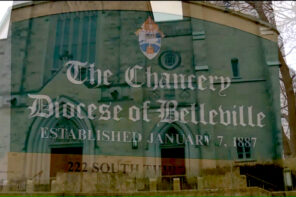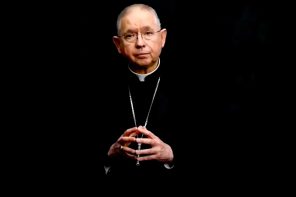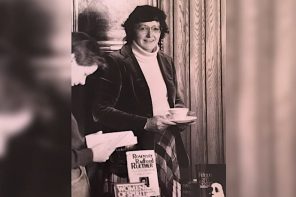In the current issue of The Nation, Greg Grandin argues that Democrats should pursue immigration reform because it’s a “progressive game changer,” a “wedge issue to call their own.” In part, he says, it would drive constituencies that have been leaning to the Republicans, like Catholics and evangelicals, into the Democratic camp.
Immigration has the potential, Grandin maintains, “to trump abortion as a wedge issue” with Catholics. This is optimistic by far for the Catholics who are under the thumb of the Vatican and fearful of questioning its doctrine, and certainly so for Catholics who are unmoveable opponents of reproductive choice. But it is not for pro-choice Catholics and the many others who might not accept the label pro-choice, but for whom abortion is not the central issue. Recall, after all, that they supported health care reform despite the Catholic hierarchy’s insistence (against reason and fact) that the final bill funded abortion.
Yet while passing immigration reform may enlighten rank and file Catholics to the good Democratic proposals can do for society, the U.S. Conference of Catholic Bishops continues to hold its nose on supporting immigration reform that reaches everyone, including LGBT people. Polling data suggests, though, that the bishops are out of touch with their flock; as the Public Religion Research poll released last week showed, a majority of Latino Catholics in California support gay marriage, and a slim majority of white Catholics do. That’s not the case for Latino Protestants, though, who still oppose gay marriage at roughly the same rates as white evangelicals. (Candace has discussed here and here how different views on theology might explain that.)
Grandin believes the movement of Latino evangelicals toward the religious right could be slowed by the passage of immigration reform. To be sure, the religious right is making a serious play for them, as evidenced most recently by the anti-choice Susan B. Anthony List’s California Latino voter education effort and the Vota Tus Valores campaign. But it’s curious that Grandin cites as his case in point for moveable Latino evangelicals the Rev. Samuel Rodriguez, head of the National Hispanic Christian Leadership Conference. Rodriguez, despite his own claims to be more of a moderate or at least a free agent, is already entrenched in the religious right.
To educate the next generation of Latino evangelicals, Rodriguez has formed alliances with Oral Roberts University and Jerry Falwell’s Liberty University. He supported Proposition 8, and is a key figure in the religious right’s effort to reshape itself for the 21st century through the Freedom Federation. His central tenet of theo-politics: to “repudiate the spirit of Herod, the spirit of Sodom and Gomorrah, the spirit of Jezebel.”
Rodriguez, like the Catholic bishops, opposes immigration reform with LGBT equality. But a bloc of House Democrats are opposed to letting that critical piece of justice fall away from comprehensive immigration reform. As Rep. Jared Polis (D-CO), a supporter of immigration reform with LGBT equality, told me a few weeks ago, the pressure from evangelicals hasn’t brought along any Republicans anyway, and Democrats have enough votes to pass a bill without them.
Passage of a bill would surely bode well for Democrats garnering the support of Latinos who support immigration reform. But it won’t be because of the White House visits by Rev. Rodriguez, who may well be overstating his reach and influence, and who thinks nothing of publicly likening Democrats to the murderous King Herod. Grandin is right that the rank and file would be pleased with passage of comprehensive immigration reform. But the Democrats don’t need Rodriguez to convince them of that, or to force their hand to pull back from including LGBT equality as part of a package.




